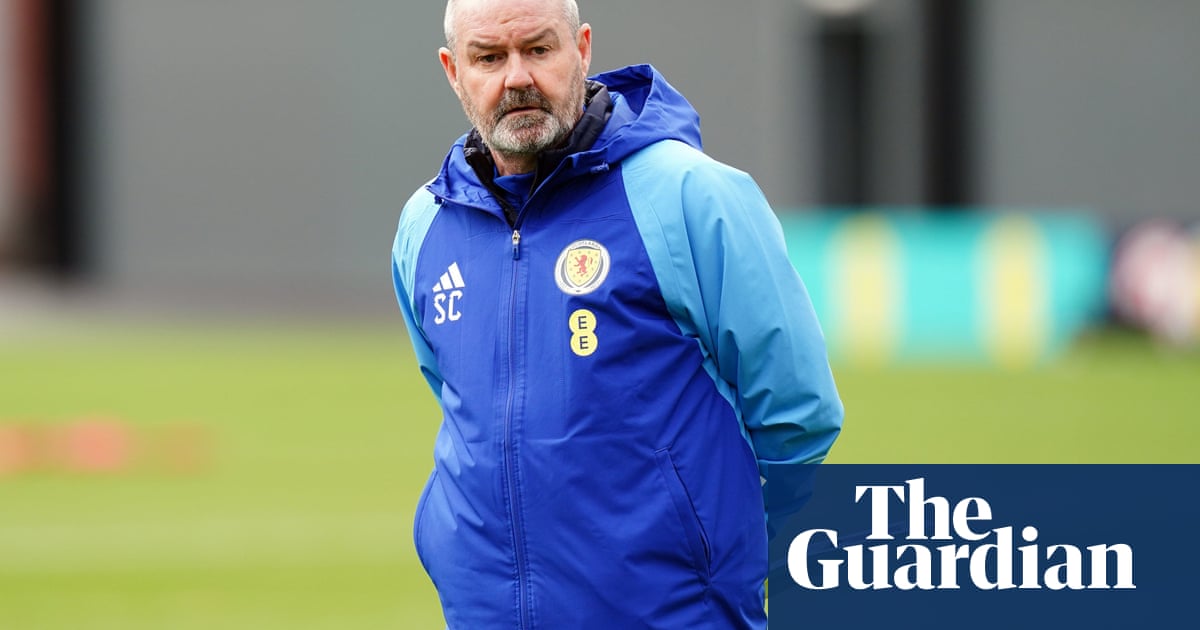
Steve Clarke set his sights on the 2026 World Cup as soon as it was apparent Scotland would not feature in Qatar this year. The manager is aware staying in his position until that time is most likely dependent on qualifying for the European Championship which falls in between.
Ukraine’s 3-1 success at Hampden Park in midweek ended Scotland’s latest World Cup dream; their wait to appear on international football’s grandest stage will stretch to at least 28 years. “I need them,” said Clarke of his players. “I want them to help me because I want to go to a World Cup with my country and I told them that after the game.
“I said to them: ‘I can’t do that unless you get me to Euro 2024.’ So they can help me. That is serious. I would love to do it. It was a big ambition to go this year, it hasn’t worked. I would love to go in 2026 but results and circumstances will dictate what happens. But this group of players, whether they are led by me or someone else, definitely can go to 2024 and 2026.
“There are actually enough in the group that are young enough to even think beyond that. I am too old to think beyond that. I will just think to 2026.” If Clarke had ambitions of being a club manager once more, they have been pushed to one side.
Scotland’s players were given some time off this weekend, with Clarke hoping to oversee a reset before Armenia visit Glasgow in the Nations League on Wednesday. Analysis of where it all went wrong against Ukraine can wait. “We had shown a resilience before,” added Clarke.
“I keep telling you, this is a good group of players who want to be successful for their country. When you have got that, you are looking to bounce back in the next game, you are looking to do well and you are looking to start the next unbeaten run.” Scotland were eight matches without defeat before Ukraine’s success.
External attention – and none of it positive – surrounded Clarke’s decision to partner Ché Adams with Lyndon Dykes in attack. The move failed to pay off, with Dykes replaced by Ryan Christie at half-time. “I have some ideas of where it went wrong on the night,” Clarke said. “People will throw different things around. Tactical, mental, preparation-wise – all those things are out there. But it’s probably a combination of things. We certainly didn’t play as well as we could.
“On the tactical side, people will say: ‘Why did you play two up front?’ Twelve games ago you were all asking me why I didn’t play two up front. That’s the reality. You can mix and match. No one questioned the two up front against Austria away and England at Wembley. It was more about we just didn’t play to our capacity on Wednesday night. And that might be hard for people to accept but that is the fact of the matter. We did not play as well as we could play.”
To his credit, Clarke refused to speculate on whether Scotland would have been in a stronger position to contest a playoff semi-final in March, the original timing of the Ukraine tie. “The best way to answer that is not to answer that, if that makes sense, and say: ‘Look, we lost to Ukraine in June,’” Clarke said. “We’ve got to suffer that. We have to take that massive disappointment. Nobody is hiding away from that. We didn’t perform on the night and we have to live with that, but move on.”
Injuries mean Clarke is likely to field a much-changed starting XI for the Armenia clash. The teams meet again on Tuesday week, after Scotland face the Republic of Ireland in Dublin.












